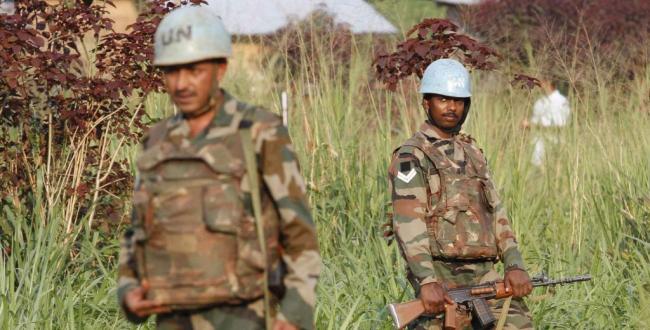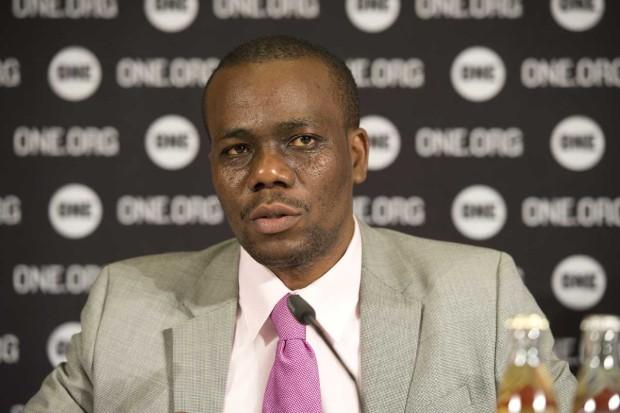The Politics of an Arrest Warrant
For Sudan’s governing National Congress Party, the unsettling prospect of having its leader, President Omer Hassan al-Bashir, indicted for the government’s disastrous response to the Darfur insurgency over the last five years has only succeeded in galvanizing the party and buttressing its determination to block action by the International Criminal Court.
The violence that the international community feared the regime would unleash against peacekeepers and humanitarian workers did not materialize. Instead, the NCP has displayed impressive political and diplomatic skills, by mustering a show of the support for the government both at home and abroad – more support than its narrow political base might justify. Khartoum reportedly is also developing a strategy to challenge the ICC on legal grounds as well.
The regime has over the years perfected internal and external mobilization techniques that have served it well whenever it faced serious threats to its hold on power. One tactic is to persuade the public that the threat is in fact aimed at core national values and strategic interests rather than only the NCP’s partisan interests. The state-controlled mass media and Friday prayer sermons were used to send that message. The NCP staged demonstrations objecting to the prosecutor’s request for an arrest warrant charging Bashir with genocide. Khartoum formed a “High Level Committee to Manage the Crisis with the ICC,” chaired by First-Vice President Salva Kiir, (the head of the southern Sudan People Liberation Movement–the junior partner in the government of National Unity.) Representatives of Darfur and the Eastern Sudan in government also sit in this committee, a gesture intended to reflect national unity in response to an existential threat. In parallel to this official body, the NCP is discussing with leading opposition groups setting up a national political committee to support the government in confronting the ICC.
On the diplomatic front, Khartoum sent emissaries to seek support from the Arab world. It asked regional organizations — the League of Arab States, the African Union and the Conference of Islamic States — to help it repel what it said was the ICC’s attack on Sudan’s sovereignty, unity and stability. The Arab League was the first to oblige, and on Saturday rejected the action of the ICC outright. On Monday, the AU’s Peace and Security Council called the request for an arrest warrant a threat to peace and appealed to the U.N. Security Council to ask the ICC to freeze action for at least twelve months.
However, the apparently seamless support barely hides the embarrassment of those who came to the regime’s rescue. The Arab League was the most embarrassed, as Sudan has in the past exposed the League’s impotence in protecting Arab populations from repression by their own governments. In 2004, the Arab League sent a fact finding team to investigate reports of mass killings in Darfur. The mission documented large scale civilian killings and rapes and called on Sudan to demonstrate its commitment to end impunity by investigating these human rights violations and holding accountable those responsible for them.(1) When the African Union deployed the first peacekeeping mission in the region starting mid 2004, the League sent only a few hundred observers and made minimal financial contributions, despite promises to increase its participation in supporting the peace in Darfur. To its credit, the League recognized Khartoum’s moment of vulnerability: After the ICC prosecutor requested an warrant, the League sent its secretary to discuss with President Bashir a plan calling for tangible progress in the search for solutions in Darfur, and for credible domestic prosecutions of those responsible for mass atrocities in the region. Khartoum touted the league’s expression of solidarity but only promised to study the action plan it proposed.
Sadeq al-Mahdi, leader of Sudan’s opposition Umma Party, tried to use the crisis to strengthen his position as an alternate power in waiting. He proposed a compromise to reconcile the apparent “conflict between accountability and stability” that would require the government to pursue a serious settlement initiative. He expected the government to guarantee freedom of expression and association ahead of elections slated for 2009.
Khartoum wouldn’t easily change its behavior in response to these exhortations from its allies; it is used to exercising full control and to account to none for far too long. However, the regime recognizes that it will have to take tangible, positive steps in Darfur, if its allies on the Security Council are to succeed in persuading the Council to defer further ICC action. For Sudan’s government, the imperatives of survival make this opportunistic collaboration with the international community a plausible next step, in the current crisis triggered by the ICC action of 14 July.
(1) See: “Statement of the extra-ordinary session of the ministerial council of the League of Arab States to examine the developments in Darfur region, 8 August 2004,” in Arabic, posted at the official site of the Arab League, accessed 22 July 2008
Suliman Baldo is the Africa Director at the International Center for Transitional Justice, New York.







Suliman raises an important set of points. The support that President Bashir has succeeded in rallying at home and abroad is both embarrassed and conditional. Take the case of the African Union. In August 2004, ahead of the U.S. governments genocide determination, the AU Chairperson sent a delegate to Khartoum to propose that the AU set up a panel of eminent persons to investigate the Darfur crisis and propose solutions. The model that Chairperson Konare had in mind was the International Panel of Eminent Personalities that investigated the Rwanda genocide and its aftermath and made a series of far-reaching recommendations. The AU representative warned that if Khartoum didn’t agree to this proposal, the UN Security Council was sure to do something more dramatic and irreversible–which it duly did when it set up Antonio Cassese’s inquiry and then referred the Darfur case to the ICC. Bashir rejected the proposal saying that Sudan would handle the matter internally. Today the AU is making an almost identical proposal. One hopes that the Sudan Government will have learned its lesson. But its proclivity for tactical management of crises, which has repeatedly led it into worse crises rather than solutions, is undimmed.